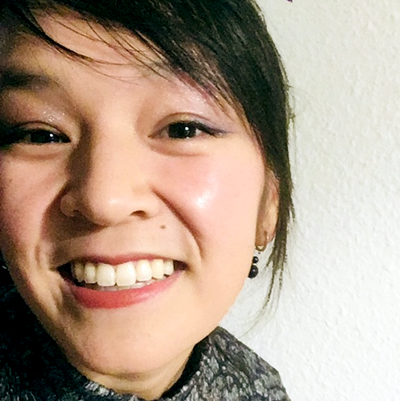Dr. Jen Nguyen, a postdoctoral fellow (Microbiology & Biomedical Engineering) in the Tropini Lab, has received a prestigious NSF fellowship in Biology. Her proposal, “Bacterial spatial organization as a microscale mechanism of ecosystem resilience” received approval within the NSF’s Integrative Research Investigating the Rules of Life Governing Interactions Between Genomes, Environment and Phenotypes theme.
The project will explore how the spatial organization of single bacterial cells can determine how the bacterial community within the mammalian gut responds to environmental perturbation. By combining sequence-based observation with biophysical insights, Nguyen seeks to provide the first causal mechanism to explain and visualize how some gut ecosystems recover from disturbance while others incur lasting change.
“The NSF postdoctoral fellowship is an extremely competitive US award and winning it is an outstanding achievement – even more so for a postdoctoral fellow at a Canadian institution,” says Dr. Carolina Tropini. “Dr. Nguyen is starting her postdoc with great momentum, and we are really excited and proud to have her as part of our team!”
Geared towards encouraging early-career independence NSF fellowships enable postdocs to pursue their research and training goals in top locations where they can collaborate with leading scientist-sponsors. Fellows are encouraged to mentor students from underrepresented groups in STEM.
Rules of Life fellowships such as Nguyen’s are intended to support research and training that will contribute to innovative understandings of ecosystems and their adaptation to change.
Nguyen’s project will investigate how the bacterial species residing in microscopic folds of the gut epithelium (crypts) can change or maintain the homeostasis of their host’s intestinal community and gut ecosystem. Both crypt- and whole-gut species composition can be altered after diarrhea, a disturbance that increases the population of some bacterial species, while causing the extinction of others. Diarrhea also alters mucus and fluid flow in the gut that might enable changes in bacterial spatial organization that favor or destabilize the presence of specific species in the gut.
To test this, Nguyen will develop a microfluidic system to track bacterial movement in a structural mimic of the mucus and fluid flow in the gut. She will also generate a spatial and temporal map of bacteria in pre- and post-diarrhea guts to link in situ spatial organization with the composition of the gut community. These multiscale data will unveil bacterial behaviors currently masked by prevailing sequencing techniques.
“The idea for the project was inspired by a very interesting recent observation1 of Carolina’s, in which diarrhea caused lasting change in a gut community, as well as temporary changes in gut mucus,” said Dr. Nguyen in an email. “My PhD training has gotten me curious about how small and rare spatial contexts in an ecosystem can drive huge change, and I am thrilled to explore what we can learn about this concept with the unique system Carolina and team have, and continue to build.”
Nguyen submitted the application after working on it for a full year, during which her hypotheses and ideas were evolving. Receiving the news was incredible, she said. “I feel really fortunate to be starting my postdoc and this new project with support like this fellowship, in addition to the support I already get from Carolina, the lab, and the community around us. I welcome anyone curious about this project or experience to please reach out!”
